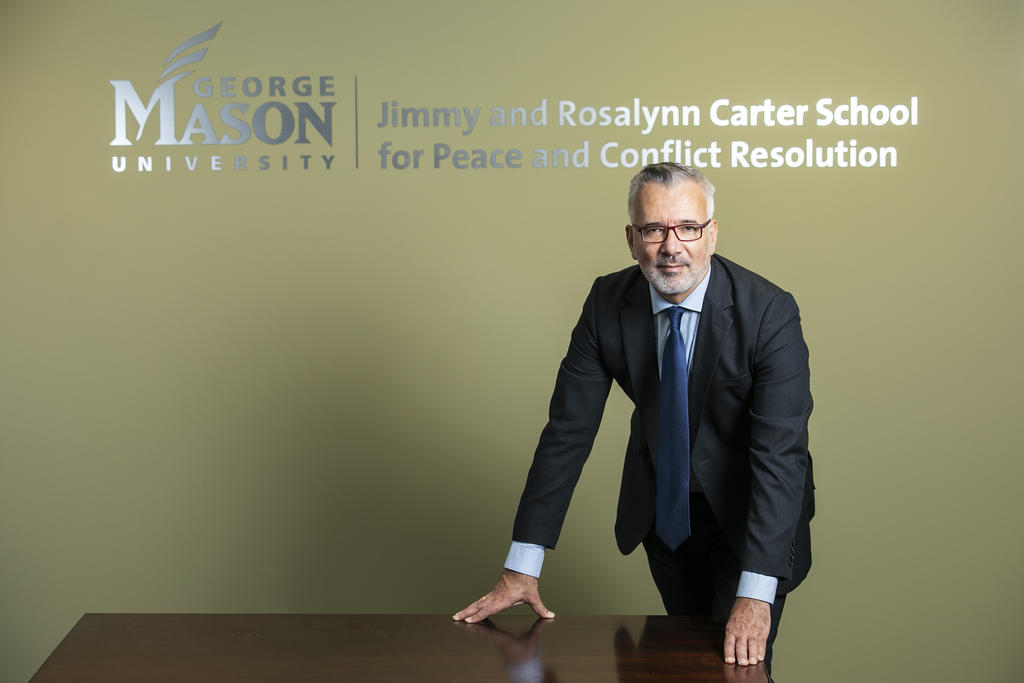
Dean Alpaslan Özerdem
A Message from Dean Alpaslan Özerdem
In our turbulent world, civilians are killed and displaced in the millions by armed conflicts. Populations see their villages and cities being destroyed, livelihoods disappeared, and lives being turned upside down almost overnight. Societies being torn apart by armed conflict take generations to heal and recover.
Let’s also remember that conflict is in fact, a normal product of human interaction, neither good nor bad. While recognizing that the effects of conflict can be positive or negative, it is important to understand that more resilient social, institutional, and global relationships are better able to handle routine conflicts and withstand the political violence that is a daily reality for many communities across the world.
Armed conflict is also experienced differently according to context and circumstances, and similarly, the experience of peace, once it is achieved, is likely to be different for different communities and individuals. A wide range of factors from demographics to the socio-political and economic characteristics of a population mean that peace not only is a context-based phenomenon but also very much depends on how it is lived, enacted, and embodied in everyday lives. Therefore, the ability to effectively analyze both the dynamics of conflict and the trajectories of peace is a must for the realization of the global objectives set by UN Sustainable Development Goal 16: Peace, Justice, and Strong Institutions.
To achieve the objectives of SDG 16, at the Jimmy and Rosalynn Carter School for Peace and Conflict Resolution (formerly the School for Conflict Analysis and Resolution), we aim to maximize the positive and transformational effects of conflict while minimizing the destructive, distorting negative ones. Our school aspires to have a transformative impact on conflict-affected societies across the world through its creative teaching, innovative research, and participatory engagement with non-academic partners.
The Carter School is the home for research excellence with impact. With our established history of nearly 40 years of research and practice in real-world conflicts, we lead peace and conflict studies with our premier faculty and research students. Conflict analysis and resolution draws on many academic disciplines, and hence we have a faculty with diverse and collaborative areas of focus. Their varied research has built an academic community that provides in-depth examination of complex conflicts and workable peacebuilding approaches, designated through our research centers.
Moreover, the Carter School embodies what is best about George Mason University. We are equally committed to access and excellence by opening doors for students who want to make a positive impact in the world. Teaching conflict resolution at all degree levels from undergraduate and Masters to PhD, the Carter School prepares graduates to engage in conflicts ranging from workplace disputes and local conflict resolution challenges to international peacebuilding and reconciliation. The Carter School's curriculum offers a comprehensive and insightful understanding of social conflict and injustices, drawing in best practices and advanced knowledge from the broadest spectrum of peace and conflict studies.
We are very proud of our 2,000-strong alumni community, who apply their education and training to careers in government service at all levels and branches, in the nonprofit and public service sector—including at many of the world’s leading NGOs devoted to peacemaking and peacebuilding—as well as in the private sector. Many of our alumni have expanded the discipline by developing new conflict analysis and resolution curricula in higher education for the academic community in the United States and beyond.
At the Carter School, we strive to balance our shared responsibilities, leading in the development of new theory, research, and practice, and serving as the training ground for the next generation of thought leaders and practitioners. Therefore, I would like to invite you to join our community whether this is through studying or researching with us, or simply supporting us with your gifts, with the overall goal of preventing violent conflicts and building just and peaceful societies globally.
Alpaslan Özerdem
Dean
Jimmy and Rosalynn Carter School for Peace and Conflict Resolution
tcsdean@gmu.edu
